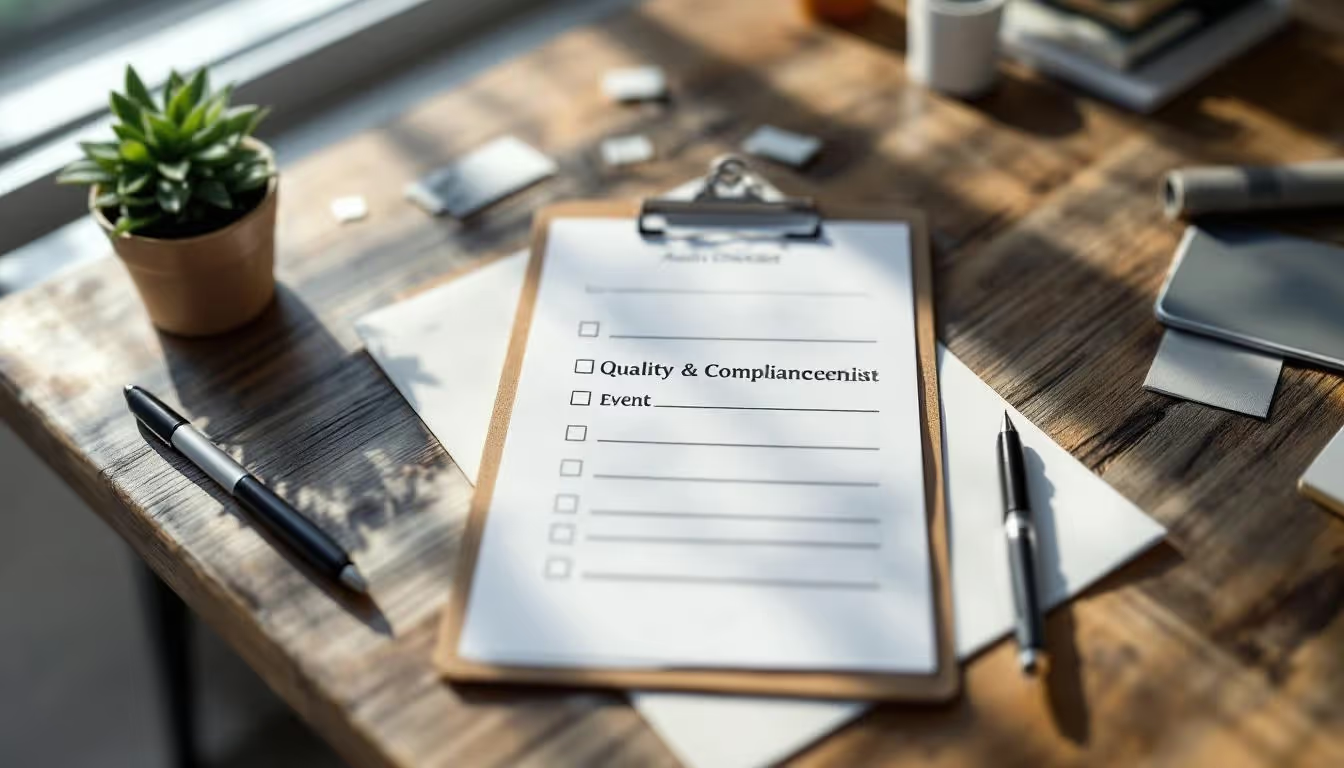Event provider audit: quality and compliance checklist
The organization of a successful event often relies on collaboration with external service providers. Therefore, how do you ensure that these partners meet your expectations? A supplier audit is an essential step in evaluating performance and guaranteeing compliance with current standards and certifications, such as ISO 9001.
Why conduct an event provider audit?
When you organize an event, several essential factors must be considered. The service provider plays a crucial role in the smooth running of activities. A quality audit not only assesses the provider's ability to meet contractual requirements but also verifies their regulatory compliance. For more information on how to make your events successful, feel free to visit our blog.
Audits help identify potential weaknesses in operational processes. In addition, they offer a valuable opportunity for continuous improvement, helping providers strengthen their internal controls and risk management.
Ensuring compliance with standards
Compliance with industry standards, such as ISO 9001, is essential to guarantee service quality. These standards establish rigorous guidelines for maintaining effective management systems. Auditing your providers ensures they adhere to these standards, reducing the risk of errors or defects during the event.
In addition, these audits ensure that providers have all the required certifications to operate legally and effectively. Verifying relevant documents is essential in the audit process.
Key elements of the audit checklist
Before starting an audit, it is crucial to prepare a checklist that covers all the necessary aspects to examine. A good audit checklist details the specific criteria to be evaluated to ensure a comprehensive assessment of the provider.
Here are some fundamental elements to include in your supplier audit checklist:
- Verification of current certifications and licenses.
- Review of risk management policies.
- Analysis of previous customer feedback to assess overall satisfaction.
- Inspection of safety standards applied during the event.
- Review of internal procedures regarding quality management.
Performance evaluation criteria
Performance evaluation is not limited to figures. It also involves analyzing the provider's responsiveness, their effectiveness in managing unforeseen events, and innovation in their proposed services. Integrating these criteria into your audit checklist ensures a complete view of the partner's ability to successfully carry out its missions.
Using a standardized evaluation grid can also help to objectively compare different providers and select the one that best meets your requirements.
Audit process and follow-up
The audit process does not stop at the initial inspection. It is vital to establish a post-audit follow-up plan to ensure that all recommendations are effectively implemented. Ensure that each point raised during the audit is treated with particular attention, especially in the event of non-compliance.
A report detailing the observations and conclusions of the audit should be shared with the provider to clarify future expectations and strengthen proactive collaboration between the parties.
Importance of internal controls
Internal controls play an essential role in protecting against errors and fraud. They also ensure that operations run smoothly and comply with established standards. During the audit, verify the effectiveness of these mechanisms within the provider's organization.
Robust internal controls increase the overall reliability of the provider and contribute positively to the success of your event.
Tips for optimizing the quality audit
To get the most out of your quality audit, it is advisable to proceed with method and preparation. Identify the specific objectives of your audit from the outset. This will focus your efforts on what really matters for your events.
It is also wise to use external, independent, and qualified auditors to get an objective view of the provider. Sometimes, this external impartiality helps to detect problems that you might have missed.
Effective Risk Management
Risk management is another critical aspect of any audit process. Assessing how a provider identifies, analyzes, and manages event-related risks is essential. Ensure that their approach integrates proactive measures, not just reactive ones.
Encouraging your partners to adopt clear and effective risk strategies will reinforce your confidence in their ability to prevent major incidents during events.
Conducting a thorough event provider audit is not a simple task, but it is a worthwhile long-term investment. By adhering to each step of the audit checklist and approaching this exercise with diligence, you ensure that your event collaborators meet the high standards required. These efforts have a direct impact on the quality of your events and the satisfaction of your audience.




